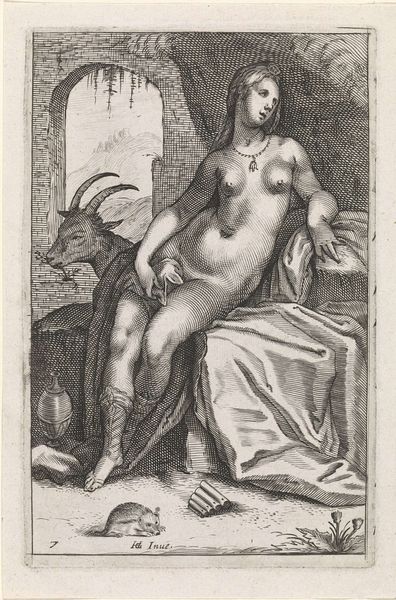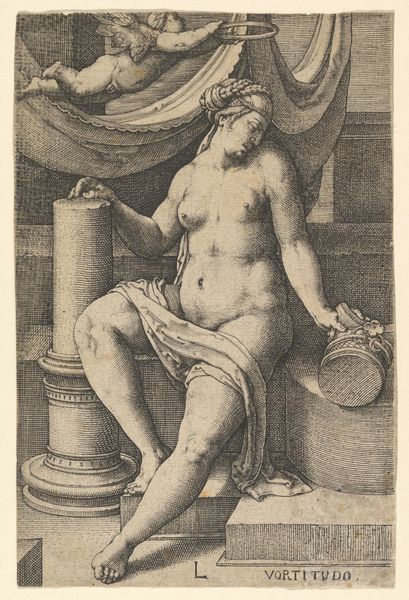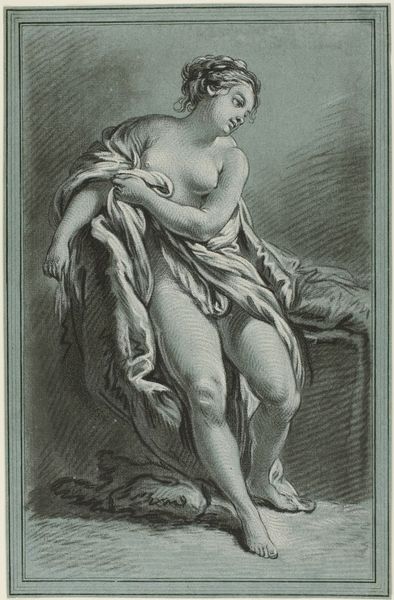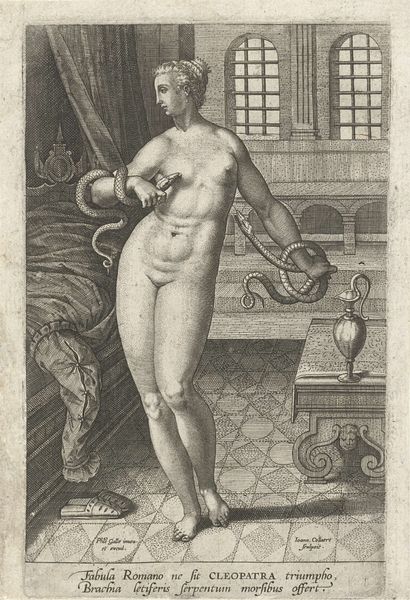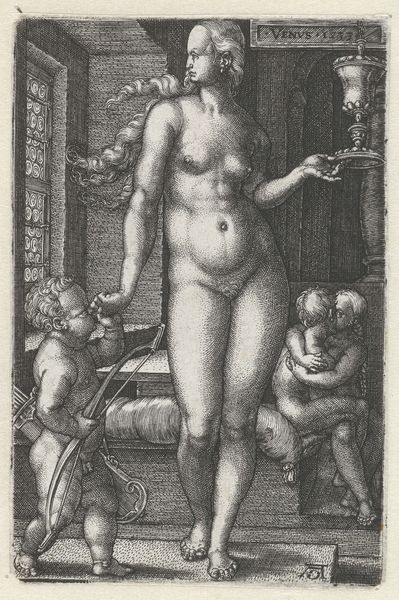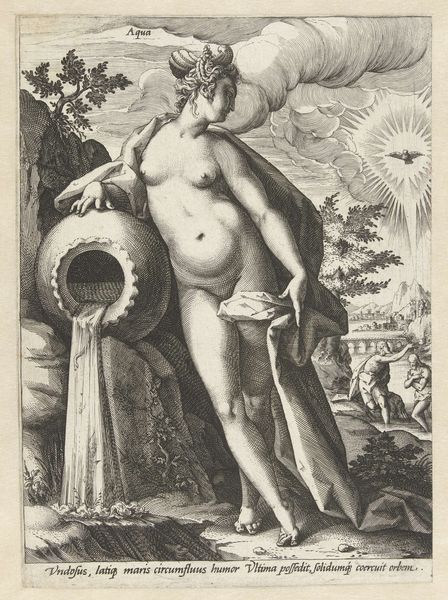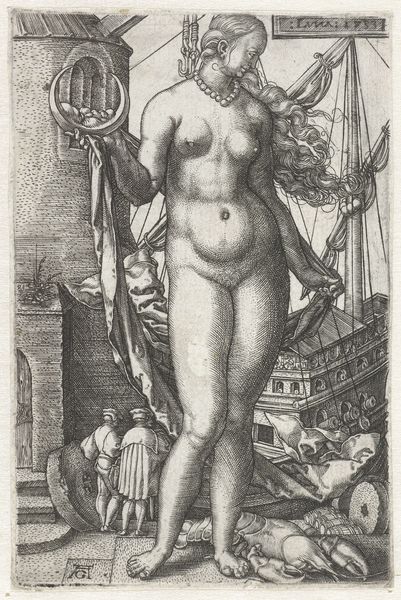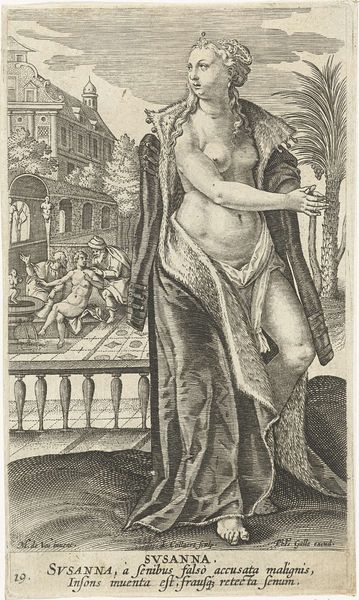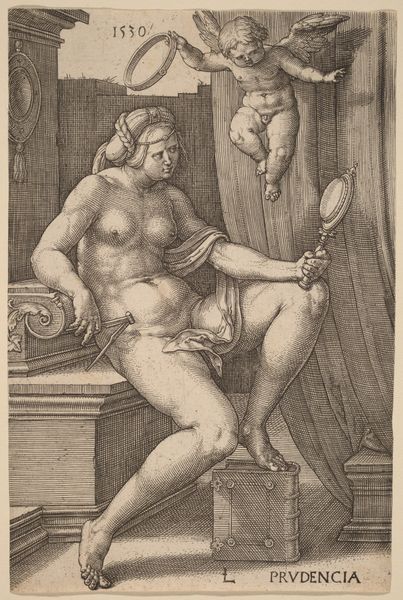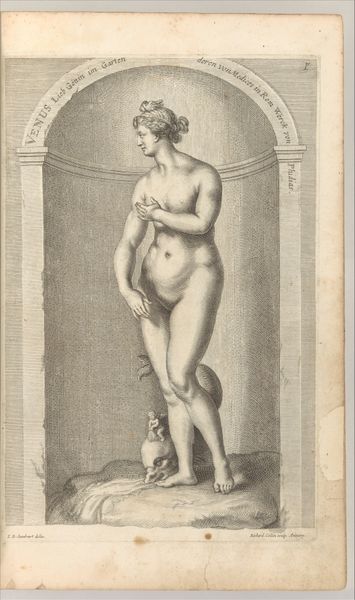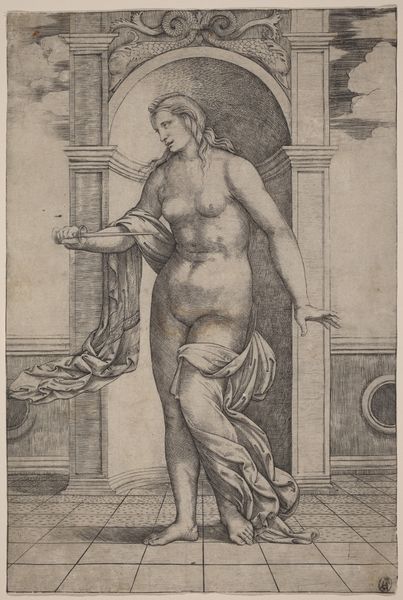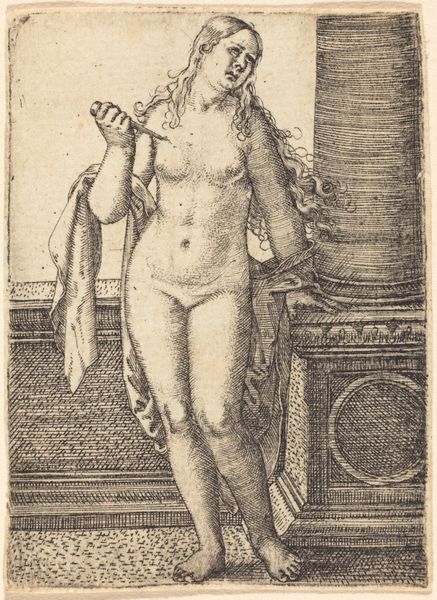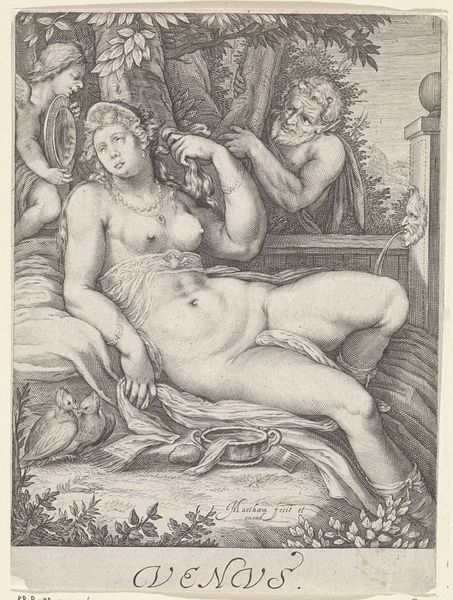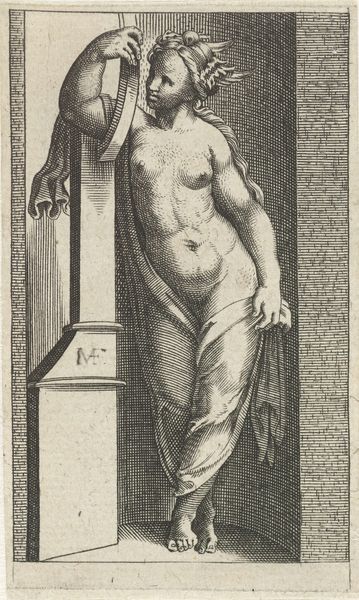
print, engraving
#
baroque
# print
#
old engraving style
#
figuration
#
portrait reference
#
limited contrast and shading
#
portrait drawing
#
history-painting
#
nude
#
engraving
Dimensions: height 162 mm, width 100 mm
Copyright: Rijks Museum: Open Domain
Editor: Here we have "Death of Sophonisba", an engraving by Jan Collaert II, made sometime between 1576 and 1628. The figure looks rather composed considering the subject matter! What aspects of the image strike you most? Curator: Well, the method of production immediately springs to mind. Look at the meticulous lines of the engraving, the labor involved in creating this print, and how that process speaks to the historical context. Prints allowed for wider distribution, for the "Death of Sophonisba" to become a commodity, consumed by a larger audience than a painting ever could. Does that affect your perception of the artwork’s cultural value? Editor: That’s fascinating! I hadn't considered the accessibility the print offers versus an original painting. It's interesting to think about the artist consciously creating something for mass consumption, essentially. How does the choice of materials themselves add to its meaning? Curator: Absolutely. Engraving, as a process, inherently demands precision. Think of the skilled craftspeople producing paper, ink, and the plates themselves. The 'Death of Sophonisba' becomes about this skilled labor, a narrative of making alongside the classical narrative. In what ways does this all alter our reception? Editor: I suppose knowing it’s a widely disseminated print challenges the idea of it being a unique, almost sacred object, which shifts my perception of its aura. Thank you, this perspective has really broadened my understanding. Curator: Precisely! Considering the production and materiality brings forth broader implications for understanding this image and its place in the world. It transforms the viewing experience, doesn't it?
Comments
No comments
Be the first to comment and join the conversation on the ultimate creative platform.
